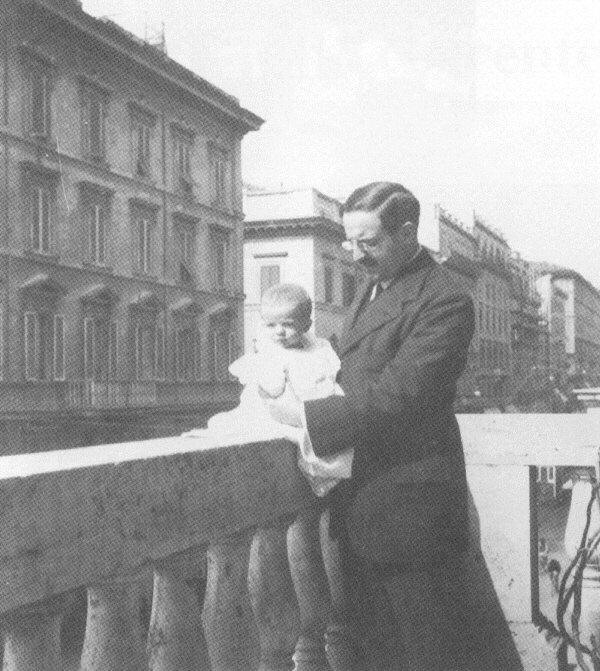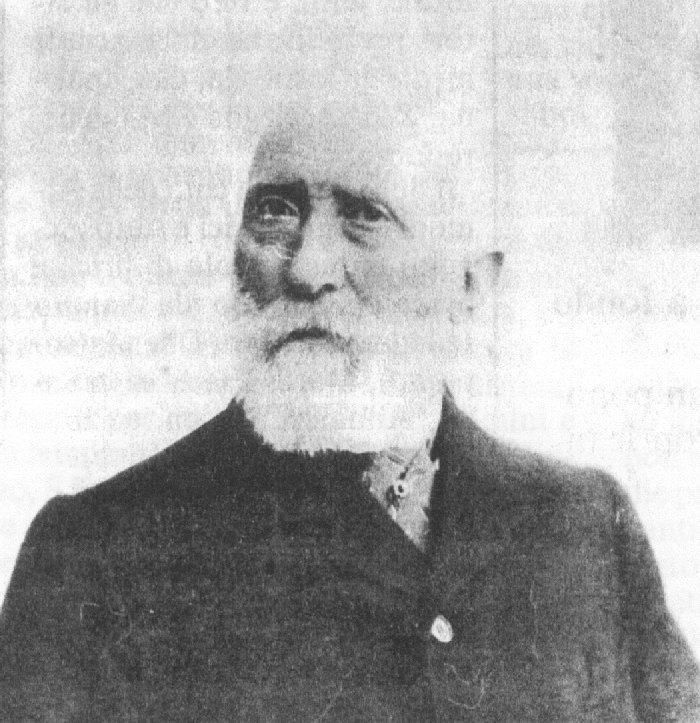|
Domenico D’Amico
Relationships with Spaventa
|
|
By Domenico Pettinella
Domenico D’Amico, Silvio D’Amico’s Uncle was on the
promotional committee for the statutory bodies of the Abruzzan Association (Associazione
Abbruzzese), which was originated by Silvio Spaventa[1] and was founded in 1886;
Spaventa, who was born at Bomba, was a Deputy of the historic Right, a great
statesman and President of the Association until his death.
At the General Assembly of 24th April 1887, with the renewal of his statutory
duties, Domenico D’Amico was elected as Counsellor of the Association together
with Francesco Cappelli, Francesco Filomusi Guelfi, Nicola Giorgi, Luigi
Mancini, Luciano Navarra, Vittorio Paolini, Francesco Roselli, Andrea Santori,
and Desio and Luigi Tancredi.
The Association had 52 statutes and there were about 200 members, all of whom
acted out of affection for the far away districts of Abruzzo. They declared with
finality the unity of brotherly meetings between all Abruzzans living even
temporarily in Rome. They developed a relationship between Abruzzo and the
Capital covering economic, social and moral aspects which always had as its
heart the betterment of the working class by means of mutual help, the
institution of a Social Club (Casa Sociale) and by organising schools. The
Association took care to send a circular containing these objectives to all the
Mayors, the Presidents of Charitable Organisations, Agrarian Consortiums etc. in
Abruzzo, to involve them and to inform them and to set up a collaborative
relationship with them. At the meeting of 15th May 1887, the President, Silvio
Spaventa, insisted on affirming that the proposed aims should be reached by all
possible and suitable means, so that the Association might have the desired
consistency and prestige. The President insisted that they should work to
determine how many Abruzzans were living in Rome, what jobs they were doing,
what opportunities they had, where they were living and how many died each year.
It was intended that this survey should be carried out especially amongst the
workers and the peasants of the Roman countryside, so that the Abruzzan colony
in Rome, Capital of Italy and its financial and economic centre, together with
all Abruzzo, might draw greater advantages from it, in as much as it offers
powers of intelligence and strength of arms for their uninterrupted and ever
increasing industriousness.
In 1887 Domenico D’Amico was re-elected as counsellor and his wife, Concetta,
became a member of the Ladies’ Committee, presided over by Sofia Spaventa; the
ladies gave a social flag (or banner) to the Association on 31st March 1889,
designed by Francesco Paolo Michetti, bearing the emblems of the Provinces of
l’Aquila, Chieti and Teramo. Spaventa
declared that this flag visibly demonstrated the Association’s honour and
accomplishments, stressing that “to say ‘flag’ is the same as saying the work
and heart of a woman, because where honour is to be kindled and delivered, woman
is the only teacher”. Amongst the initiatives undertaken by the Association we
should remember their interventions in favour of populations struck by
|

Silvio D'Amico and probably his son, the musicologist Fedele D'Amico,
in Rome in the period 1930-35.
|
|
natural calamities, such as at Taranta
Peligna, where a landslide
on 7th and 8th June 1889 buried more than 200 houses which was worsened by
flooding of the River Aventino. Aid for these people only arrived two years
after the catastrophe due to delays by the Government. The Association also
helped the Communes of Castellamare, Pescara, Antrodoco etc. It is of note that
Domenico D’Amico was a prime mover in the Mutual Assistance department of the
Association and, given the closeness of the brothers, Fedele (father of Silvio
D’Amico) must also have been a member of the Association. These experiences of
his Uncle and his Father will certainly have influenced the development of
Silvio D’Amico’s character. This could be an important field of future research.
Domenico D’Amico worked with several
important Abruzzan people belonging to the Association, attracted by their
glamour and garnering experiences. Amongst these he must certainly have been
struck by the great personality of the President, Silvio Spaventa, with whom he
collaborated as a Counsellor. He carried out his activities fired by the values
and programmes referred to by the Association, which were always kept in mind by
the President. It is worth noting a passage from the letter that the
President wrote to Professor Francesco Filomusi Guelfi on 31st March 1889, on
the occasion of the flag being given to the Association, which he had been
unable to attend due to ill health: “Italian, above all in my mind and because
of my education, I am very proud to hold a quiet place in my heart, where I only
feel Abruzzan. It is not an immeasurable pride, because it only comes from the
idea of a certain modest quality of our race, for whom the height of the
mountains in which they lived, prevented them from degenerating even under the
most barbarous savagery.” He also noted that, “Each Abruzzan says the same thing
within himself.” Then he added, “Now
the conscience of our own blood and of our native place is a moral force, that
ought to be preserved even within the breast of our great Country, that we have
conquered.” The union created by affection for his own region and his own
Commune, Spaventa added, “carried even outside the confines of our
territory, to |
which
one makes a special note, if it is kept to
the service of solidarity and co-operation for the good (of all), it can
generate a powerful organism, which, as it confers usefulness to one part, is
not discordant with the interests of everyone else; rather it harmonises with
the most intense patriotism. This is where our Association originated from, out
of mutual help in Rome; and this is its significance and its scope”. Concerning
the validity even today, actually even more so today, of these programmes and
human, social and cultural values, he who supports them needs to reflect that
today these values seem almost completely to have disappeared in political
society and in part also in civilian society, because they have been lessened,
if not derided, in relationships where people think or act only to their own
advantage, from what is useful, from blowing one’s own trumpet, from the
subjugation of the needy and the uneducated. Domenico D’Amico personally worked
with zeal to accomplish these values.
(Recently – summer 1991) there was a ceremony to put up the (commemorative)
stone on the house where Silvio’s father and his uncle (Fedele and Domenico)
were born; the stone contains this same message and thanks to the initiative of
the Civic Administration of Torricella Peligna the message can reach everyone,
rich and pregnant with its universal values, so that it is therefore still
relevant today. Antonio Piccone Stella’s thoughts, published in “Amici di
Torricella” of 11th June 1991, where he remarks that, “in every place the sum of
the cultural experiences of the people who are born there become deposited, so
that to rediscover the beautiful and important things that some of them have
achieved, is the best thing that one can do for the good of the community”,
represents the confirmation that today we can recover that olden system of
social, civil, religious and cultural values. Piccone, who feels “Torricellan”
(and why not? even Abruzzan!) despite having spent 60 years in Rome and having travelled around the world, confirms it to us and pushes us into believing and
acting, even though it may be difficult, so we may go forth along this road,
exactly as the Amici di Torricella Association does. |
|

Domenico D'Amico
TRANSLATOR’S NOTES:
[1] Silvio Spaventa - (1822 1893) statesman, pupil of Colecchi,
a patriot.
Silvio Spaventa, championed the unification of Italy, was a proponent of the
Hegelian state, and a severe administrator; he played an important role in the
Neapolitan revolution of 1848 and an even more central one in the
post-unification period.
Born at Bomba (Chieti), Silvio shared his famous philosopher brother Bertrando's
interest in philosophy and politics {Bertrando Spaventa - 1817 1883}. In March
1848 Silvio founded a journal with republican tendencies, Il Nazionale, which
supported both the on-going revolution in Naples and the movement towards
Italian unification. Elected to the Neapolitan Chamber of Deputies in April, he
soon lost faith in the Bourbon King's pledge of constitutional rule,
particularly after Ferdinand II brutally crushed the disturbances of May 15 and
ejected the deputies from their chamber. During that summer, with Luigi
Settembrini, he helped found a secret society, Unitá italiana devoted to ousting
the dynasty and promoting unification. Later in the year he went to Turin to
attend a Gioberti-sponsored congress for an Italian confederation. Following the
collapse of the revolution in Naples, he was arrested and after a long trial,
notorious for its irregularities, he was sentenced to death. The sentence,
however, was commuted to life imprisonment and in 1859 to banishment. He
returned to Naples in 1860 to support Cavour against both Bourbons and
Garibaldi.
After unification he held important public posts. True to his conception of the
state as guide to and guarantor of material and moral progress, he favoured
public ownership of the country's railways and equity in public administration.
He died in Rome.
|
|
Translation courtesy of
Dr. Marion Apley Porreca |
|